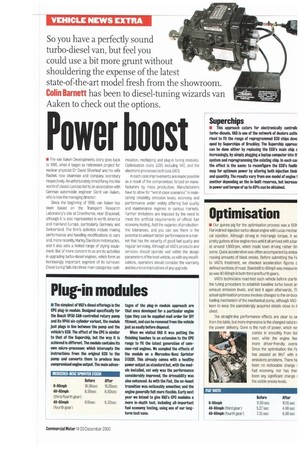Power boost
Page 17

If you've noticed an error in this article please click here to report it so we can fix it.
• The van Aaken Developments story goes back to 1992, when it began as retirement project for nuclear physicist Dr David Silverleaf and his wife Rachel, now chairman and company secretary respectively. An unfortunately timed foray into the world of classic Lancias led to an association with German automobile engineer Gerd van Aaken, who is now the managing director.
Since the beginning of 1999, van Aaken has been based on the Transport Research Laboratory's site at Crowthorne, near Bracknell, although it is also represented in north America and mainland Europe, particularly Germany and Switzerland. The firm's activities include making performance and handling modifications to cars and, more recently, Harley Davidson motorcycles, and it also sells a limited range of styling equipment. But of more concern to us are its activities in upgrading turbo-diesel engines, which form an increasingly important segment of its turnover. Diesel tuning falls into three main categories: opti misation, rechipping and plug-in tuning modules. Optimisation costs £385 including VAT, and the electronic processes both cost £470.
In each case improvements are made possible as a result of the compromises forced on manufacturers by mass production. Manufacturers have to allow for "worstoase scenarios" in maintaining reliability, emission levels, economy and performance under widely differing fuel quality and maintenance regimes in various markets. Further limitations are imposed by the need to meet the artificial requirements of official fuel economy testing. Add the vagaries of productionline tolerances, and you can see there is the potential to unleash better performance in a market that has the security of good fuel quality and regular servicing. Although all VAD's products and services should operate well within the design parameters of the host vehicle, as with any modifications, operators should consider the warranty and insurance implications of any upgrade.




































































































